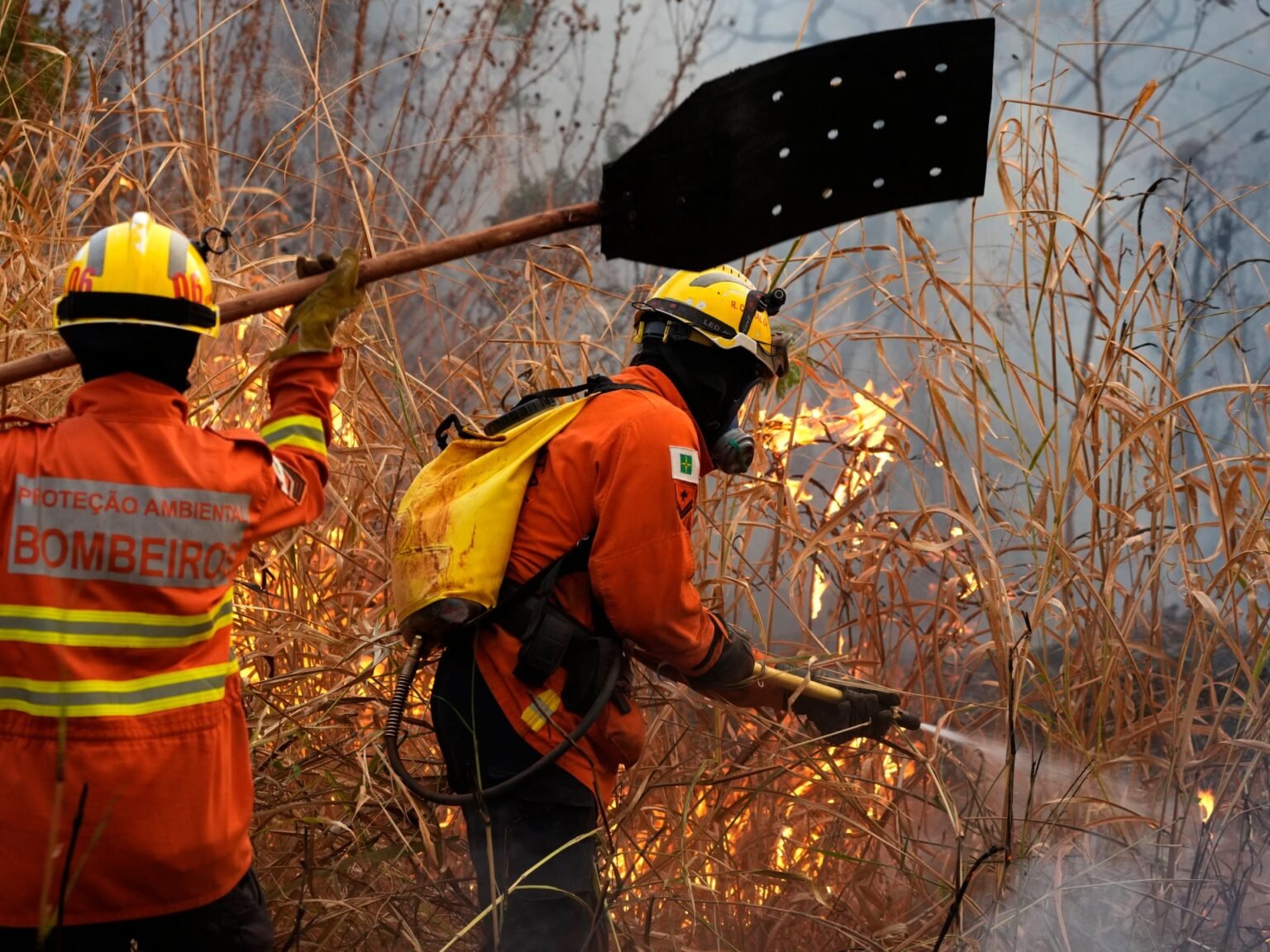In Brazil, wildfires have been spreading through the Brasilia National Park, causing smoke to choke the capital city of Brasilia. More than 490 firefighters have been working to extinguish the blazes, which have already consumed 2,000 hectares of the conservation area. This is just one of many wildfires in the country, which is currently facing a historic drought. The fires are causing significant damage to the park, with four main fire fronts concentrated in the eastern region.
According to a statement from ICMBio, the government agency managing the park, three aircraft are using water to fight the flames, and a helicopter is assisting in monitoring the burned areas. The fire spread rapidly due to high wind speeds, low humidity, and extreme heat. The cause of the fire was determined to be human activity, and federal police are investigating the case. The smoke from the fire has engulfed Brasilia, with black columns visible from various points in the city.
The wildfires in Brazil have not been limited to the Brasilia National Park, with fires also raging in the Amazon rainforest, Cerrado savanna, and Pantanal wetlands. The uncontrolled fires have devastated protected areas and caused air quality to deteriorate significantly. In response to the ongoing crisis, a Supreme Court justice issued a ruling authorizing the government to allocate additional funds towards firefighting efforts and hiring more firefighters.
The country is facing its worst drought in over 70 years, with 59 percent of the country affected by the severe conditions. Major rivers in the Amazon basin are experiencing historically low water levels, further exacerbating the wildfire situation. Scientists have attributed the extreme weather events, including wildfires and floods, to climate change, which creates favorable conditions for such disasters to occur.
The situation in Brazil highlights the urgent need for climate action to address the impact of wildfires driven by extreme weather events. As the country grapples with the devastating effects of the drought and wildfires, it is crucial for the government and international community to take concrete steps to mitigate the impact of climate change. By investing in sustainable practices, conservation efforts, and disaster preparedness, Brazil can work towards protecting its natural ecosystems and communities from the growing threat of wildfires and other environmental disasters.

